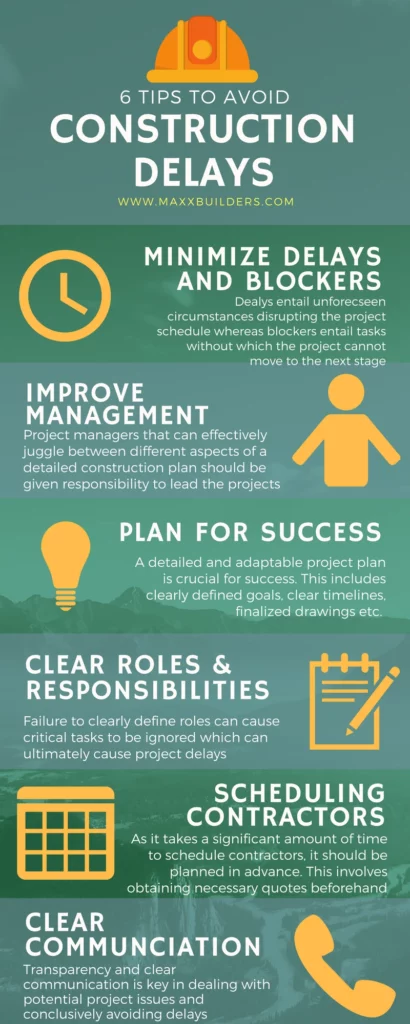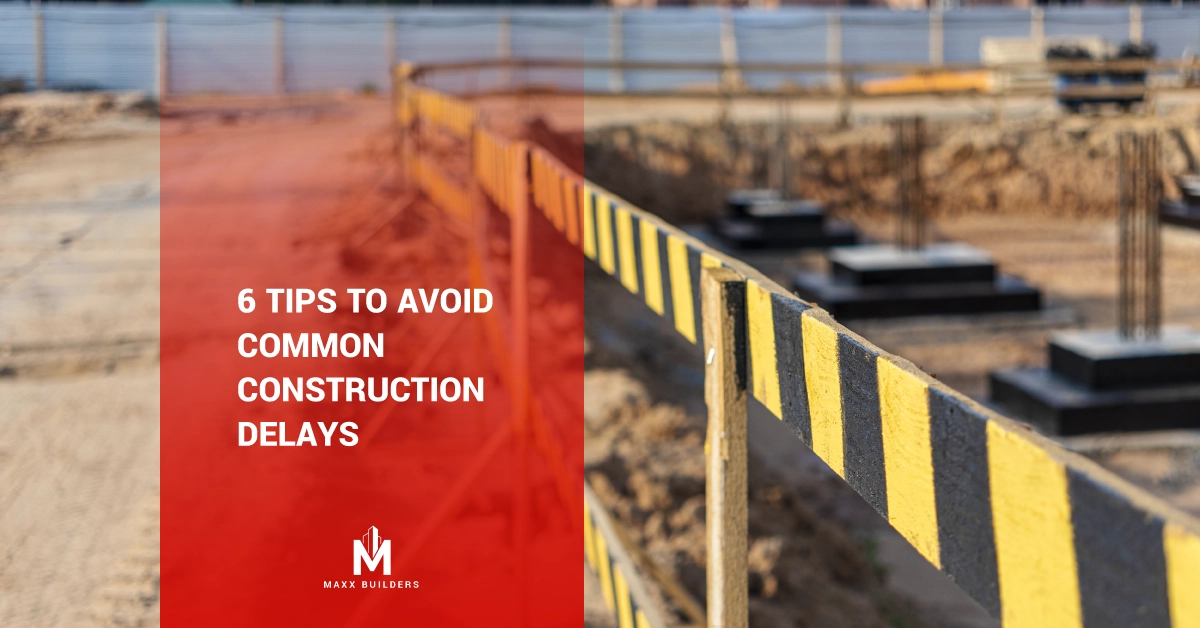A frequent cause of construction projects going over budget is the failure to complete the project on time. This can result due to a number of factors that are discussed in this article along with ways to overcome these delays. It is very important to stay on schedule in order to stay within the agreed-upon budget.
Whether you’re a general contractor, developer, real estate investor, or even a project manager, the tips provided below can help you understand how projects can be kept on track and efficiency can be maximized while doing so.
Minimize construction delays and blockers
Two types of issues can prevent a project from being completed on time: delays and blockers. Experienced project managers understand each type of these issue and know how to address them accordingly.
A construction delay happens when the project plan is not followed due to various unforeseen circumstances. As construction is a sequential process, this is usually unavoidable. For example, if it was planned to pour concrete in a certain time frame and it starts raining during that time frame, the task will get delayed. This means that the contractors would need to reschedule for another day. Other causes of delays can be sub-contractors being late, work taking longer than expected, or material shipments being delayed.
On the other hand, blockers are different. A blocker is a job that should be finished before other jobs can be started. For example, a mason might be scheduled to lay bricks on a building, but this task cannot be completed before the foundation has been poured.
Therefore, a project should be meticulously planned to avoid construction delays and blockers must be identified in advance in order to be prepared to overcome them during the construction process.

Improve management methods
Another primary reason for project delays can be due to ineffective management. Managers are responsible for creating the project plan which includes all required elements and completing the project by the agreed deadline. A project manager or construction manager will assign roles and responsibilities within the project to encourage transparency regarding who will be playing what role within the project. He/She will also be responsible to manage labor and materials on the job site so that processes flow smoothly. A great project manager can deal effectively with different aspects of a detailed construction plan.
Plan for success
A detailed project plan is crucial to avoid construction delays. This should be an adaptable plan that can take into account changes that may occur in the future. Many contractors initiate projects without clearly defined goals including unclear timelines, lack of finalized drawings, or no prior communication with important sub-contractors. This can cause a lot of potential delays in the future as well as immense additional costs. The project plan should be very comprehensive and should consider all details regarding the project. This includes things like project goals, timelines, sub-contractors’ roles, and responsibilities, etc. This should also entail a contingency plan which will take into account action items in case of unforeseen circumstances. At Maxx Builders, Construction Online is used to take all details into account so that the project can be managed efficiently and effectively.
Assign clear roles and responsibilities
Commercial construction projects involve various stakeholders including employees, contractors, sub-contractors, developers, managers, etc. Therefore, it is important to have everyone’s roles and responsibilities circulated throughout the team so that there is no confusion as to who is responsible for what aspect. Failure to define roles for each party involved can cause critical tasks to be ignored and ultimately result in project delays. People involved should be held accountable for their responsibilities and frequent status update meetings can help in providing progress updates for each of the stakeholder’s duties. Emphasis should not just be placed on what needs to be done but also on who is responsible for doing it and by when. It is also important that stakeholder feedback should be involved in the process of delegating roles and responsibilities so that everyone feels like they have input on the matter.
Schedule contractors in advance
It takes a significant amount of time to get every contractor lined up for a construction project. Therefore, all the necessary sub-contractor divisions that are required for the project should be determined beforehand. These should be contacted early on to obtain quotes and other necessary documents to ensure that everything is in place before starting the project. The time for ordering products, planning, and bidding should also be taken into account. Contractors should be scheduled in advance for all these tasks.
Establish clear Communication between parties
Poor communication can lead to serious delays in a construction project. When unanticipated circumstances emerge on the construction site, it is imperative for the site personnel to have a direct line of contact with the project managers. Once the issue is communicated, all key stakeholders must be made aware of the problem to diagnose and assess it and come up with a solution.
Nowadays, Construction Project Management software makes it easy to receive real-time updates from job sites to all relevant stakeholders. This practice ensures that everyone involved in the project is on the same page and working towards the resolution of issues.



